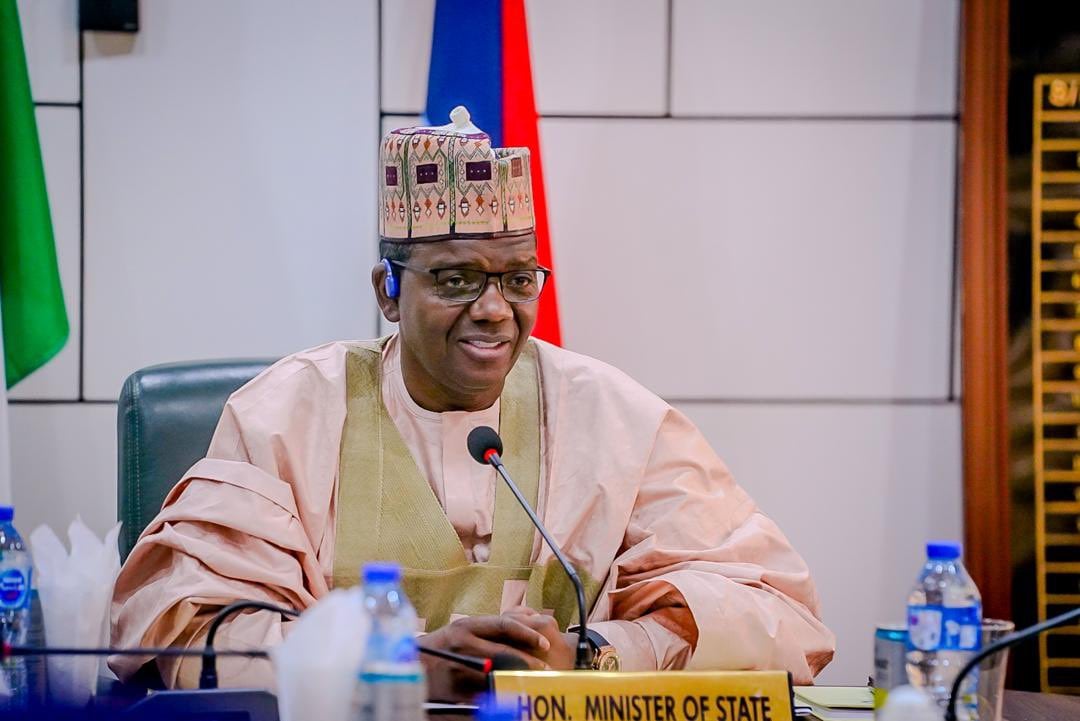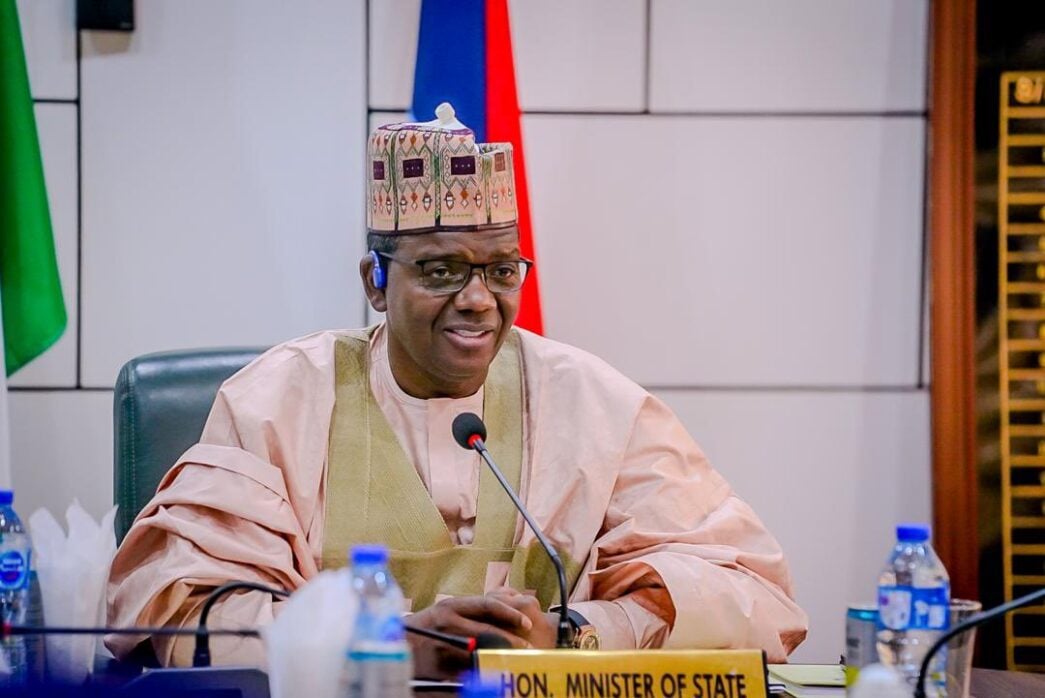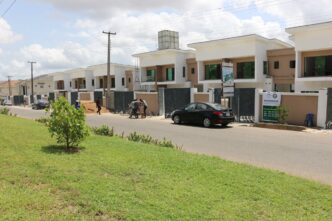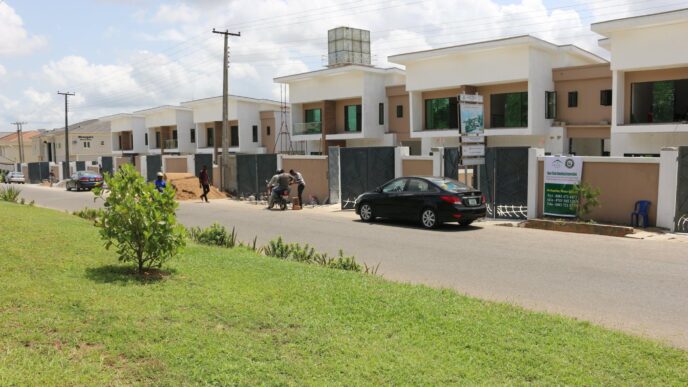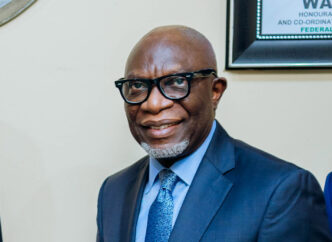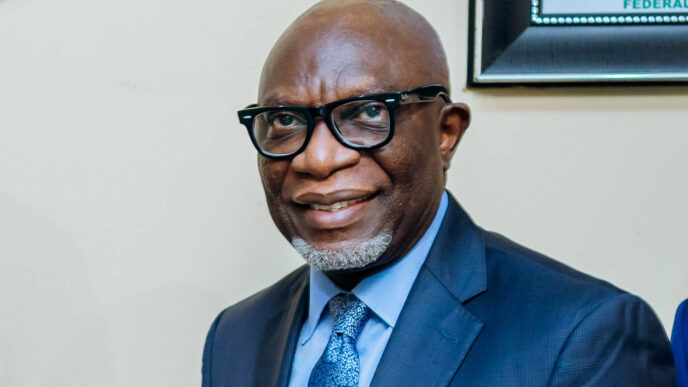Bello Matawalle, minister of state for defence
BY NATHANIEL C. ADOJI
As a teenager living in Kaduna in the 1990s, with an uncle who was a Colonel in the Nigerian Army, I was often puzzled by the annual Christmas gift we received from him—a bag of salt from the Defence Industries Corporation of Nigeria (DICON). Given my understanding that DICON stood for Defence Industries Corporation of Nigeria, I could not fathom why the organization was producing salt instead of military hardware. It struck me as an anomaly because DICON, established to be a leader in the production of weapons, arms, and ammunition, had not lived up to its intended purpose.
DICON was founded in 1964 as part of Nigeria’s defence establishment, with a focus on producing military and defence-related equipment to promote self-reliance in defence production. Additionally, DICON was expected to engage in research and development to innovate and advance Nigeria’s defence technologies. However, it is an undeniable fact that DICON had not fully realized these mandates. Recently, under the administration of President Muhammadu Buhari, efforts were made to reinvigorate DICON and ensure it fulfils its foundational purpose.
In 2015, former President Buhari directed the Ministry of Defence to develop a clear and measurable strategy for enhancing Nigeria’s security industrialization. This was part of his broader vision to re-engineer DICON to meet the nation’s military hardware and logistical needs. In 2019, the President launched the Mine Resistant Ambush Protected (MRAP) vehicle produced by DICON, a notable first in the country’s history. Furthermore, he mandated that all security agencies procure their uniforms and other kits exclusively from DICON.
These commendable initiatives laid the groundwork for DICON’s resurgence, aligning the organization with its original mandate. More recently, under the leadership of President Bola Ahmed Tinubu, DICON has experienced an unprecedented revival, guided by the Honourable Minister of State for Defence, Dr. Bello Matawalle MON.
Advertisement
Nations worldwide place a high premium on their ability to defend against external threats, with self-sufficiency in security being a critical component. The United States, for instance, has several agencies dedicated to this cause. The Defense Logistics Agency handles the procurement and distribution of defence supplies, while the U.S. Army Armament Research, Development, and Engineering Center (ARDEC) focuses on developing and producing weapon systems, ammunition, and related technologies. Additionally, the Defense Advanced Research Projects Agency (DARPA) is at the forefront of developing emerging military technologies.
This is the direction taken by serious nations committed to safeguarding their security. Germany’s Diehl Defence and the United Kingdom’s BAE Systems are similar examples in Europe. Nigeria, a nation rich in resources and blessed with a brilliant populace, should naturally be a leader in producing its own military hardware.
Domestic production of military hardware is fundamental to national security, as it ensures that a country has the necessary equipment and technology to defend itself against potential threats. By manufacturing these items locally, nations reduce their reliance on foreign suppliers who may refuse to sell to them, as was evident in Nigeria’s experience with the U.S. Senate during the purchase of Super Tucano fighter jets—a situation that was both embarrassing and a challenge to our sovereignty.
Advertisement
Imagine Nigeria facing a crisis without the local capability to produce essential military hardware; the consequences could be catastrophic. Therefore, having fully operational defence industries is critical for Nigeria’s responsiveness and resilience.
It is within this context that the current administration’s strategic military objectives, which seek to empower the Defence Industries Corporation of Nigeria, are of paramount importance. Dr. Matawalle recently led DICON in signing a significant Memorandum of Understanding with the National Agency for Science and Engineering Infrastructure (NASENI) to establish a factory for producing arms and ammunition for the Nigerian Armed Forces. This achievement is far from trivial. The establishment of this factory will save Nigeria at least $60 million in bullet purchases from abroad. This money can be redirected towards other critical investments within the Nigerian Defence establishment. Beyond the financial savings, this move signals a bold commitment to security self-reliance.
Dr. Bello Matawalle, a former Governor of Zamfara State, has firsthand experience in addressing security challenges at the state level. He understands the critical importance of equipping troops with the right tools to carry out their duties effectively. By reviving DICON and positioning it strategically as an agency capable of meeting Nigeria’s immediate security hardware needs, the Honourable Minister of State for Defence is ensuring that the corporation fulfils the purpose for which it was established.
Furthermore, the Honourable Minister has emphasized that DICON will be at the forefront of research and development to meet the technological needs of the security sector. This initiative will elevate the industry to the level of its peers, such as ARDEC in the United States and Diehl Defence in Germany. The broader implications for the economy are significant, as Nigeria could soon begin to export the technological products developed by DICON.
Advertisement
DICON holds immense potential, which must be fully harnessed. The industry is fortunate to have a Minister like Dr. Matawalle MON overseeing its operations. To maximize the value of this potential, the Honourable Minister must continue to provide unwavering support to the industry. The current focus on production capacity, partnerships, and research and development must be sustained to achieve meaningful impact. I also recommend that the Minister ensure DICON expands its product range to include specialized equipment that addresses both current and emerging security challenges.
Finally, DICON must build a robust supply chain to ensure consistent access to high-quality materials and components, with an emphasis on local sourcing. This approach will stimulate Nigeria’s local economies, create jobs, and promote technological innovation that will benefit other sectors.
Adoji, a public affairs analyst and commentator writes from Kaduna.
Advertisement
Views expressed by contributors are strictly personal and not of TheCable.
Add a comment
